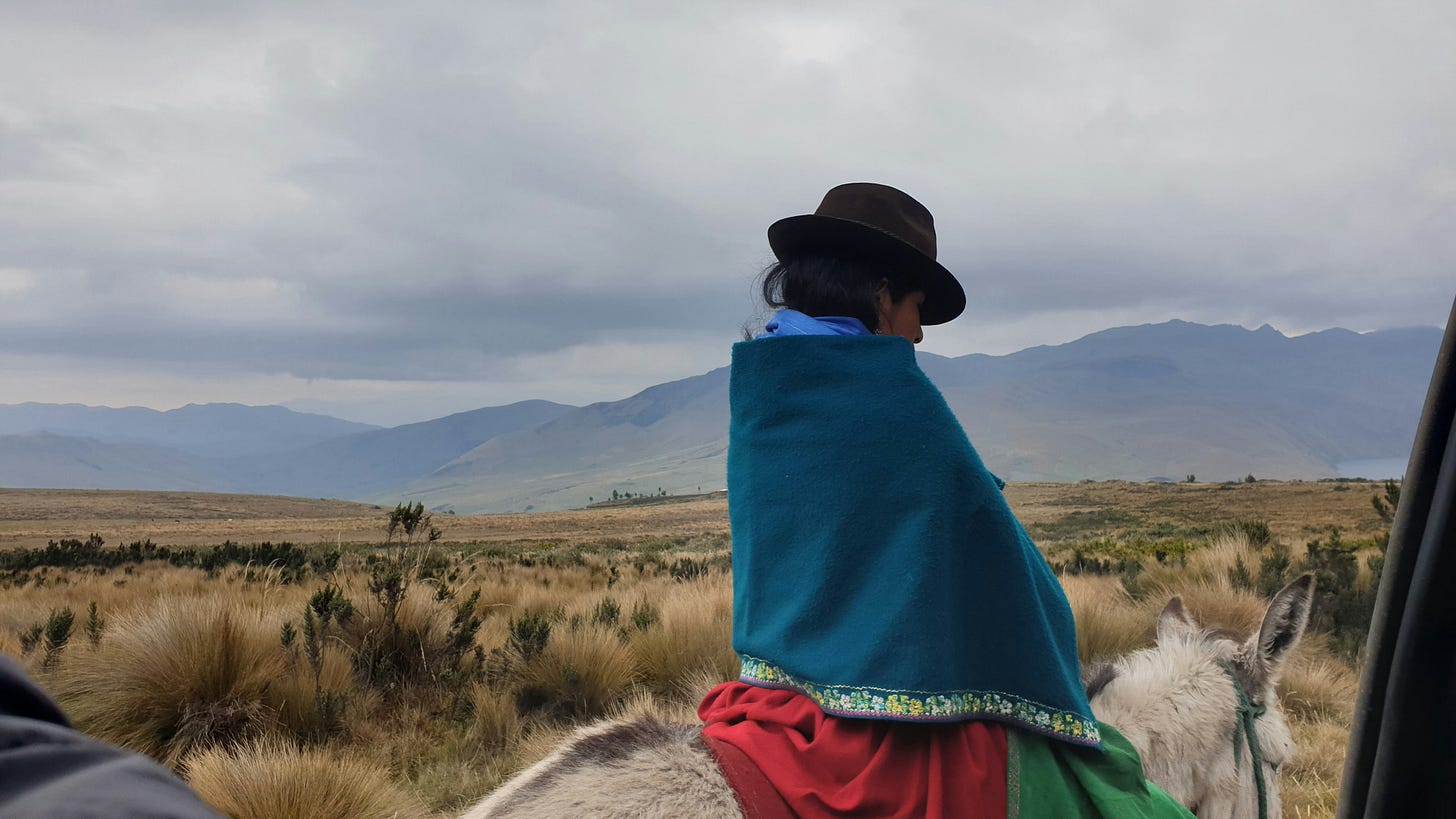Change Everything No 37: Indigenous economics, based on equality and relationships
Looking for the opposite to neoliberal/neoclassical economics? This is time-proven
Book news
Coming up on the 14th of February at 7pm I’ll be joining Wales Green Party leader Anthony Slaughter (author of Future Wales: A Vision for a Green Democracy) to talk Change Everything, the book at the wonderful Book Space in Cardiff.
If you’re needing last-minute presents anywhere, the e-book would make an easy option: only £4.19 from Hive.
Indigenous economics - pretty well the opposite of neoliberalism
A fast-developing strand of economics that offers an alternative to the failed, bankrupt neoclassical economics is indigenous economics, which has an understanding of economic systems based on relationality grounded in equality among humans, nonhumans and more-than-humans. Rather than selfishness being the predominant force, it is reciprocity and generosity that the system assumes and is based on. That’s the take from Ronald L Trosper’s Indigenous Economics: Sustaining Peoples and Their Lands, which I’ve been reading (and have also listened to on the New Books Network.)
This is an economics with its focus on “living well through relationships”, a term Trosper uses as a translation for various Andean languages’ terms, distinguishing it from the Western-founded “wellbeing” economics that tends to focus on the situation of the individual or collective human, rather than the community of humans and nature.
Buen vivur means building relationships with the non-human - Photo by Terra Sur Travels on Unsplash
“Relationship goods are trust, cooperation, peace and similar primarily subjective things that contribute to sociability. When nature is included, the relational goods create a sense of stewardship that in turn promotes high productivity of the land, ecological resilience to external chocks, and the flourishing of all species.”
Trosper’s “living well” is, he says, the opposite of “development”, as defined by the World Bank and IMF. He goes to the empirical sociologist Rist for a definition of that as having three key features “(1) the transformation of the natural environment, (2) the transformation of social relations, and (3) an increase in the production of commodities.” No wellbeing or public good there - just destruction and more “stuff”. (Most of which, as we well know, is either exported and goes to the few rather than the many.)
What’s wealth in the indigenous economics perspective? People having strong relationships with each other and everything in their landscapes: an economy of affection and community. That does present a challenge to old-style economics - where are the numbers - but of course just because you can put a number on something doesn’t mean it is genuinely valuable. This can also be referred to as balance or beauty.
The practical reality of today means that states have to be included in relationships, and that’s the case with the five detailed case studies that the book works through: in Ecuador (Tunguhaurua) indigenous people refusing to treat water as a commodity, but nonetheless managing its flow to general benefit, in Ontario, the Whitefeather Forest initiative, in Aotearoa/New Zealand the very well-known case of the right of legal personhood for a river, and the co-management of the Bears Ears National Monument in the US.
Rights for rivers - a fast-growing concept. Photo by Dan Becker on Unsplash
Trosper takes on the suggestion that indigenous economics is focused on the collective at the expense of the individual, saying rather the opposite is the case. There is a desire frequently among indigenous communities not to stand out, but this he suggest is more to avoid putting pressure on others to do things your way or agree with you: “When one is aggressive, one is impinging on the autonomy of other people.” The autonomy of other humans, and non-humans, has to be respected. The very idea that there is a single human nature (Homo economicus or anything else) is anaethema. “A person grows into autonomy through his or her relationships.”
That extends too to relationships with animals: “Because animals think and feel, humans must ask themselves if they would like to be treated in that manner. From the Kluane [Yukon, Canada] viewpoint, one should not coerce animals because of their power; the consequences can be severe, such as the disappearance of a source of food. The relationship might come to an end.”
How humane. How practical: this is thinking longterm and systematically.
Picks of the week
Reading
In the Journal of Australian Political Economy, a useful unpicking (PDF) of concepts from green growth to degrowth to postgrowth. Don’t 100 per cent agree with it, but for terms that often get thrown around casually, definitely useful.
What kind of growth? Photo by Brandon Green on Unsplash
Listening
Just caught up with the Past Present Future podcast episode in its History of Bad Ideas series on Modernisation. A truly unmissable explanation of the way critical thought about the process, from Marxists, from sociologists, from economists, was somehow transformed into the uncritical celebration of the idea almost right across the political spectrum, but particularly concentrated in the centre left, with its propensity (see Tony Blair from ‘Cool Britannia’ to so-called AI) to see the latest technological and social trend as a solution to social ills, an approach that looks right out-of-date very quickly.
Thinking
A disturbing metanalysis concludes that sexual violence against women in warzones may be three times worse than had been estimated. It found that over one in ten of the women surveyed (11%) had experienced sexual violence perpetrated by a non-partner during a conflict; estimates of the lifetime prevalence of non-partner sexual violence from women in conflict settings (21%; based on data from 16 737 participants from eight studies) were triple WHO global estimates.
Researching
A really useful, practical study on the airborne transmission of disease: “Even individual use of N95 masks can lower transmission risk by threefold, no matter the duration of contact, whereas surgical and cloth masks are much less effective.”
Photo by Jon Tyson on Unsplash
Almost the end
In the UK, “Clothing sales dropped by 2.6% in November, taking them to the lowest monthly level since January 2022.” Maybe we’ve all just got enough clothes? (Or a great deal more than enough?)
What did you think?
You can also find me on Instagram, Facebook, LinkedIn, TikTok and X.









Really loving the subject scope and generous humanity in your writing, thank you for sharing